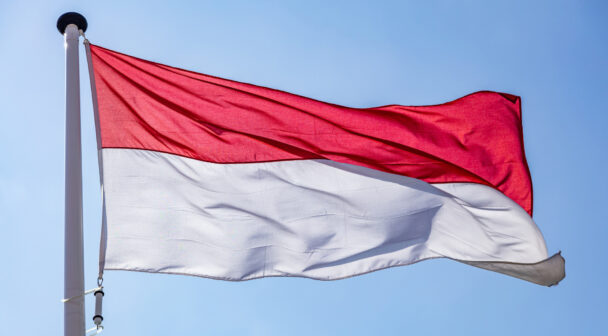THE INDONESIAN GOVERNMENT WILL IMPLEMENT A “NEW NORMAL” POLICY TO DEAL WITH THE COVID-19 SITUATION

Indonesian qualified lawyer
Fiesta Victoria


Fiesta Victoria is an Indonesian qualified lawyer with over 16 years of experience in M&A and general corporate. She graduated from the University of Pelita Harapan in 2006 and started her career as a lawyer in the same year at one of the largest and oldest law firms in Indonesia. She joined ZeLo in 2019 with the primary role of establishing and developing ZeLo’s Indonesian practice group. She won the title of "Business Development Lawyer of the Year" at the ALB Women in Law Awards 2021. Additionally, she was nominated as one of the top 5 finalists for "Foreign Lawyer of the Year" at the ALB Japan Law Awards 2023, following a nomination in the same category at the ALB Japan Law Awards 2022.
Apostille is a method of verifying or certifying a document for its use in another country, and essentially is the result of an agreement between the contracting states of the Hague Convention Abolishing the Requirement of Legalization for Foreign Public Documents in 1961 (“Convention”).
The purpose of this Convention is to remove the need for diplomatic or consular certification of foreign public documents, which is known to be time consuming and to replace it with a simple certificate issued to a specific format, known as the “Apostille Certificate”. This certificate being the Apostille Certificate which once attached to a document would remove the need for any further certification of such document when it is presented in another contracting state.
Last year, on January 5, 2021, Indonesia ratified the Convention through Presidential Regulation No. 2 of 2021 (“PR No. 2/2021”) (for further details on PR No. 2/2021, please refer to our earlier update https://zelojapan.com/en/5132 ).
Following such ratification, on January 26, 2022, the Indonesian Government issued an implementing regulation to further regulate the Apostille Certification Services for Public Documents, under the Minister of Law and Human Rights (“MOLHR”) Regulation No. 6 of 2022 (“MOLHR Regulation No. 6/2022”). The MOLHR Regulation No. 6/2022 will be effective on 4 June 2022.
Any Documents (defined below) issued in Indonesia which will be used in other contracting states that have ratified the Convention must be Apostilled.
“Documents” in this context means any public document in the form of a written or printed letter that is signed by an authorized official as evidence of information and/or affixed with an official stamp and/or seal[1].
This includes:
The Apostille certification requirement does not apply to the following documents:
The certification of Apostille in Indonesia will be held by the MOLHR via the Directorate General of Public Law Administration of the Ministry of Law of Law and Human Rights (“Directorate General”).
The application for Apostille is to be made online by the applicant or through its attorney by submitting: (i) an application form (available on the Directorate General’s website), (ii) the supporting documents (i.e., identification card of the applicant, or, if relevant, power of attorney (and the identification card of the attorney), and (iii) the document to be Apostilled.
The documents submitted will be verified within three working days upon receipt of a complete application. Once the verification is completed and payment of the official Apostille fee is made by the applicant, the Directorate General will notify the applicant electronically to collect an Apostilled Certificate and bring the document requested to be Apostilled.
For further information on the above, please contact this form.
[1] Article 1 paragraph 2 of MOLHR Regulation No. 6/2022.
The information provided in this article does not, and is not intended to, constitute legal advice and is for general informational purposes only. Readers of this article should contact an attorney to obtain advice with respect to any particular legal matter.

